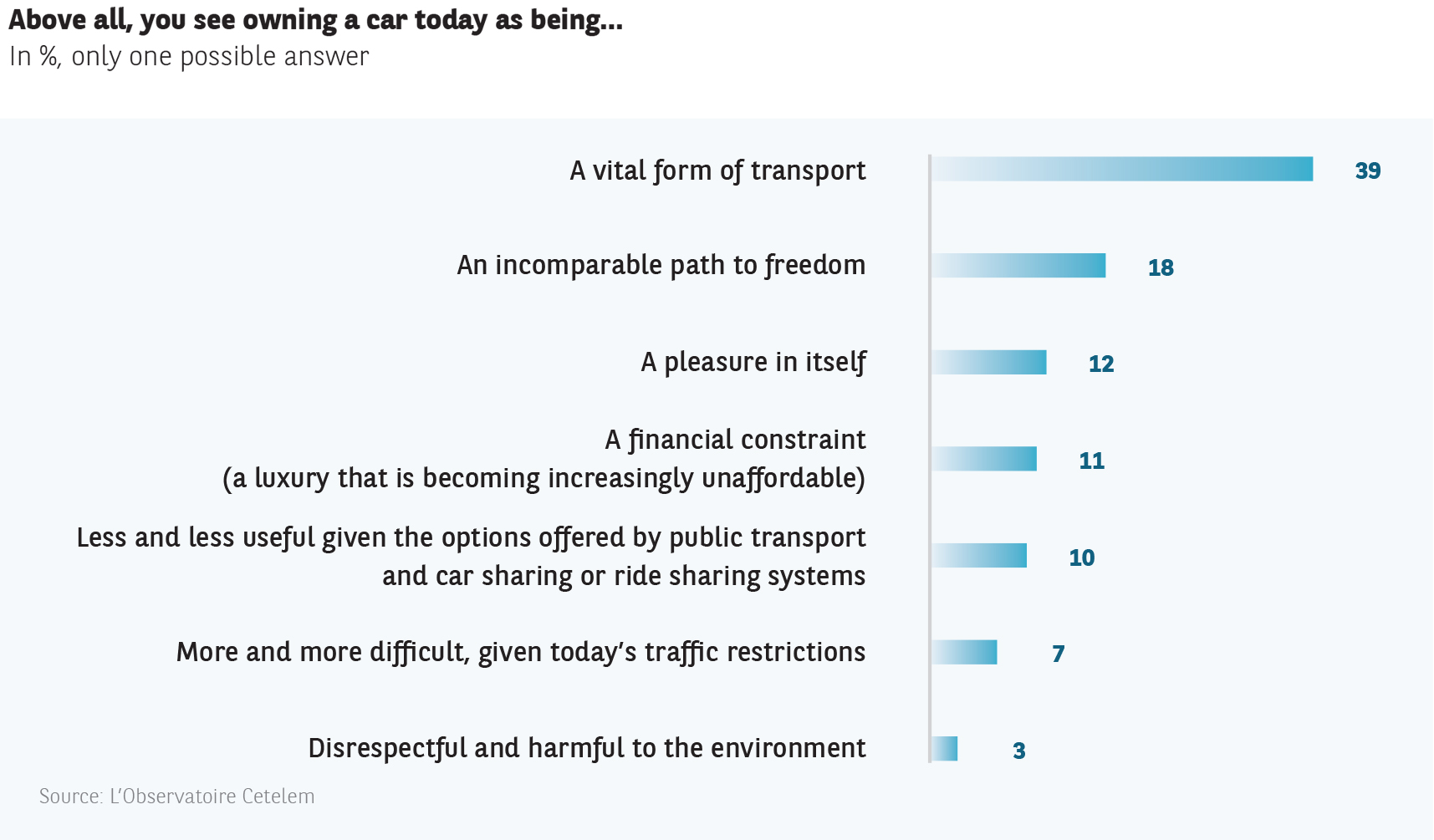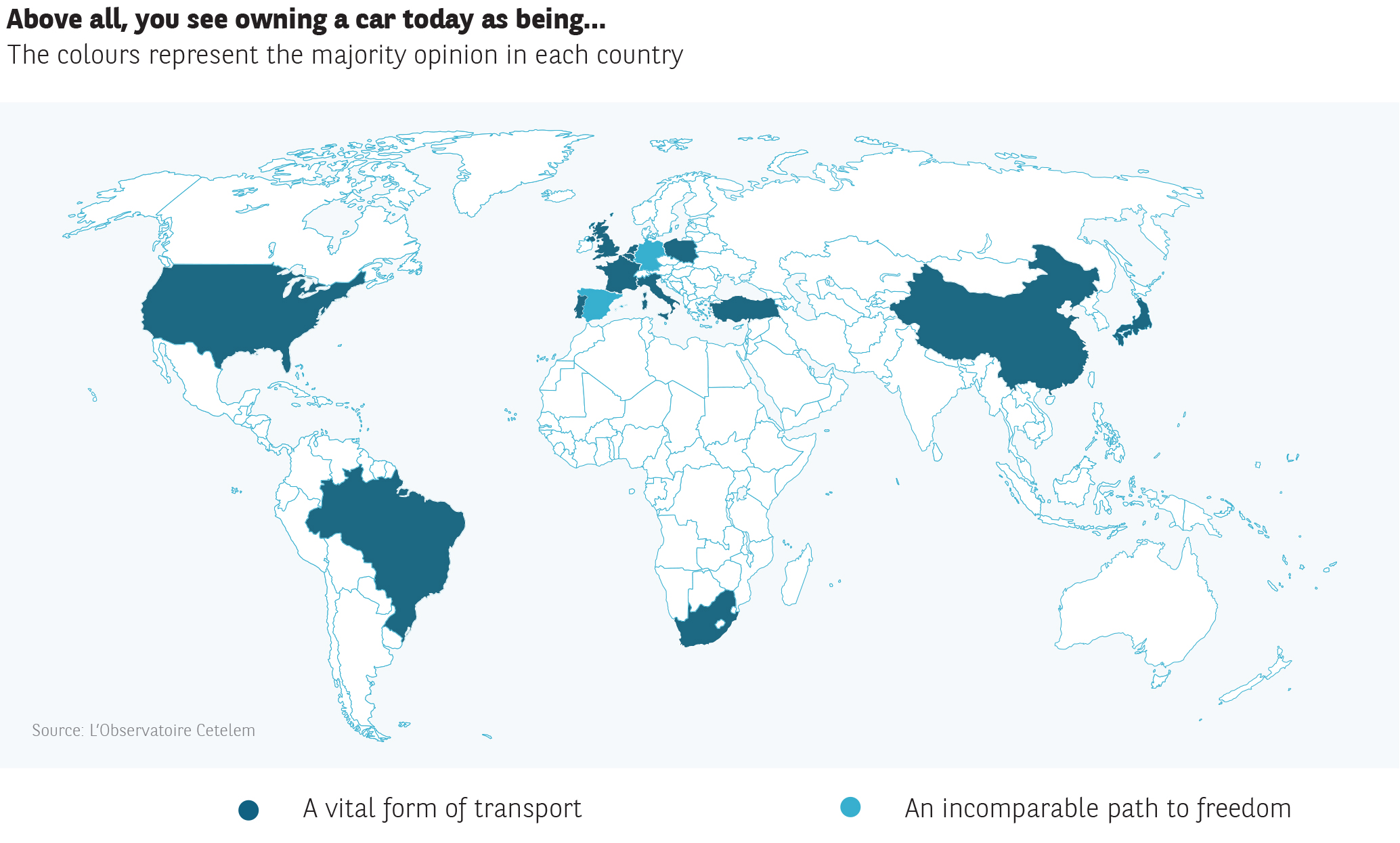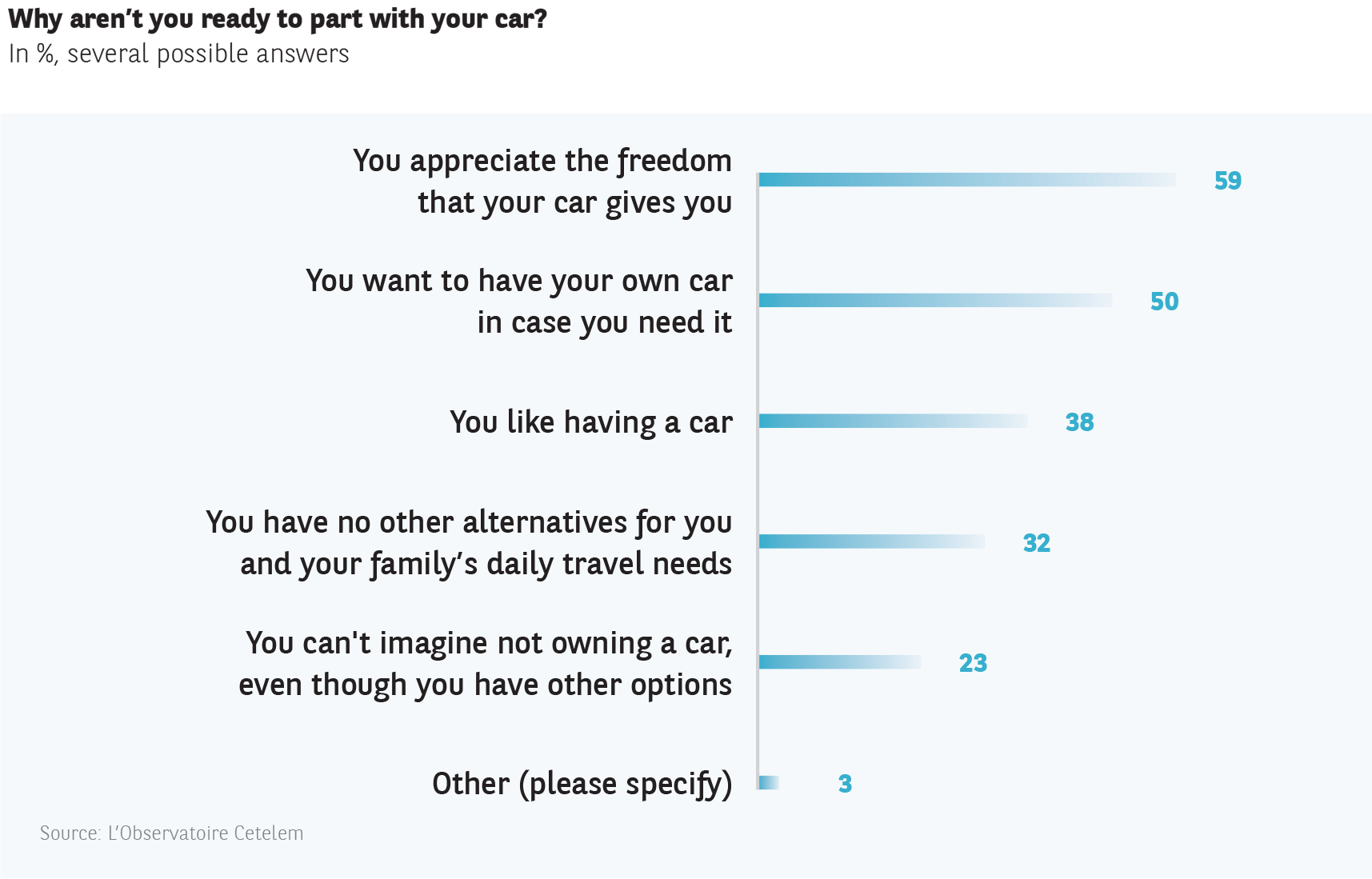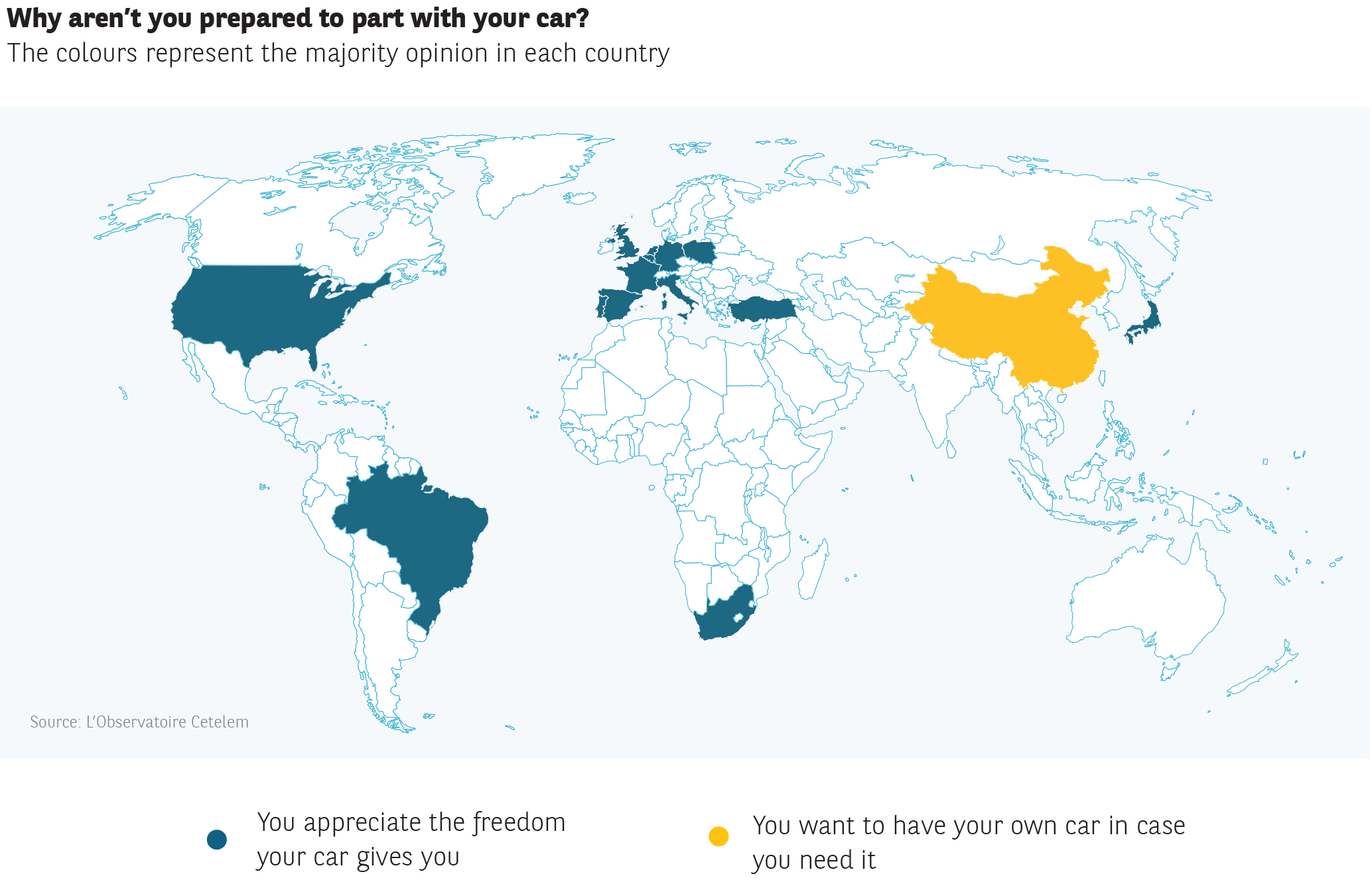Owning a car : reasons and feelings
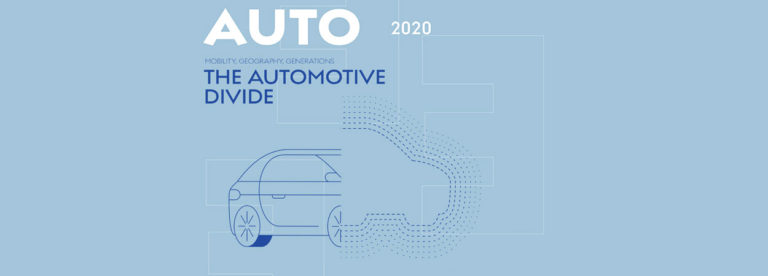

39% of those interviewed, believe that a car is, above all else a vital form of transport, a view most likely to be expressed by those in rural areas (47%) and seniors (44%).
This is most clearly stated in Italy, Belgium and Japan, but much less in Germany.
But the car is not only a practical item, because it continues to be a vessel for people’s dreams. For 17% of motorists, it is an incomparable path to freedom. This is an opinion shared by all generations, particularly in Spain and Germany (40% and 31%). Conversely, only 5% of Japanese respondents associate cars with freedom.
12% believe that driving is a pleasure in itself, a feeling that is strongest among the Americans and South Africans (22%). Only 5% of Portuguese respondents cannot see the pleasure in driving. On this point, millennials seem to be anticipating or only just discovering the potential pleasure that cars can bring and are more enthusiastic than their elders, for whom driving seems to have lost its lustre over the years (15% vs. 9%).
Lastly, 11% consider cars to be a financial constraint.
9% believe that their usefulness is waning, given the expanding range of transport options (public transport, car sharing, ride sharing, etc.).
FIG. 5 :
FIG. 6 :
KEEPING ONE’S CAR: A PRIMARILY EMOTIONAL CHOICE
When it comes to expressing their reasons for keeping their vehicle, motorists put forward a vision that is more idealistic than pragmatic (Fig. 7 and 8).
59% of respondents view the freedom it gives them as being decisive. The South Africans, Portuguese and Germans place the greatest focus on freedom (74%, 69% and 66%), while the Japanese and Chinese are at the other end of the scale (44% and 52%).
The French post a close-to-average score.
38% simply state that they love their car. The majority of South Africans also declare their love for their vehicle (60%), much like the Americans and British, who are true to their reputation as car enthusiasts (57% and 52%).
However, contrary to the stereotype, the Italians are the least fond of their cars (22%).
23% cannot imagine living without a car. The South Africans are once again the most likely to reject this prospect (35%). Meanwhile, the Chinese, who live in the world’s largest automotive market, and the Italians fear this idea the least (12% and 14%).
FIG. 7 :
KEEPING A LEVEL HEAD (AND YOUR CAR)
There are other more sensible reasons why motorists do not want to let go of their car. 50% of respondents believe that there are eventualities in which a car could be essential. This is very much the view in China (61%), but much less so in Turkey (26%). 32% consider that they have no other travel alternatives, with the French being the most likely to state this opinion (44%).
This result goes some way to explaining why debating car use in France can be a potentially explosive endeavour (as demonstrated by the “yellow-vest” movement).
Conversely, despite living in a vast country, just 15% of Brazilian respondents deem that cars have no credible competition.
FIG. 8 :

